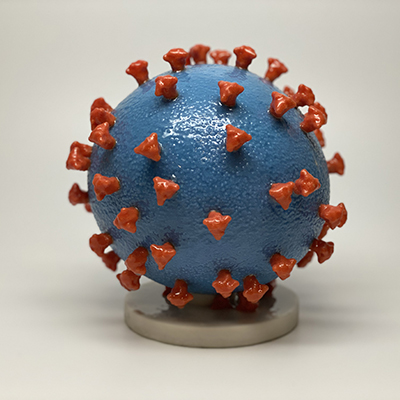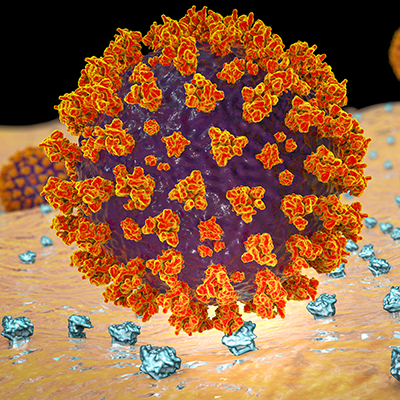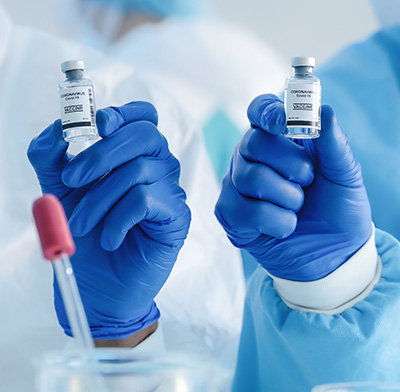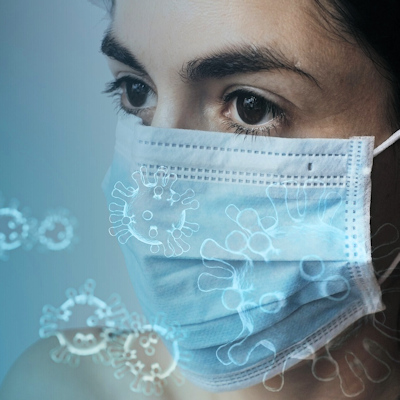February 1, 2021 -- Scientists have developed biosensors to detect SARS-CoV-2 proteins and antibodies in simulated nasal fluids and human sera, according to a study published in Nature on January 27. The approach promises to be less costly and time-consuming than current COVID-19 testing methods.
Biosensors are devices used to detect the presence or concentration of specific biomolecules or biological structures. In this case, the researchers designed protein-based biosensors that recognize specific molecules on the surface of a particular virus and bind to them, then emit light through a biochemical reaction.
The scientists applied this approach to design biosensors of antibodies against SARS-CoV-2 protein epitopes and of the receptor-binding domain (RBD) of the SARS-CoV-2 spike protein.
The result was a biosensor that glows when mixed with COVID-19 antibodies.
The researchers were able to demonstrate that their SARS-CoV-2 biosensor does not react to other antibodies that might also be in the blood, including those that target other viruses, which is an important consideration for avoiding false-positive test results.
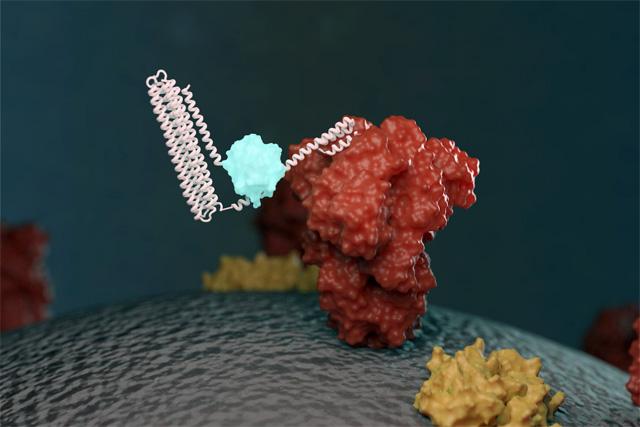
The researchers hope that their approach will lead to faster testing in clinical settings. Currently, SARS-CoV-2 infections are routinely diagnosed using reverse transcription polymerase chain reaction (RT-PCR). However, RT-PCR is a slow process that relies on specialized skills and equipment in the laboratory. Furthermore, the COVID-19 pandemic has created shortages in lab supplies and other supply chain issues that slow down patients' test results even further.
In contrast, luminescence-based protein biosensors offer an attractive approach to testing, particularly at the point of care, because they promise a nearly instantaneous readout. Furthermore, the quantification of luminescence can be carried out with inexpensive equipment such as a cell phone camera.
"We have shown in the lab that these new sensors can readily detect virus proteins or antibodies in simulated nasal fluid or donated serum," said David Baker, PhD, director of the Institute for Protein Design at the University of Washington, in a statement. "Our next goal is to ensure they can be used reliably in a diagnostic setting. This work illustrates the power of de novo protein design to create molecular devices from scratch with new and useful functions."
In addition to their biosensor model for detection of SARS-CoV-2, the scientists also demonstrated that similar models can be designed to detect proteins associated with cancer, namely human epidermal growth factor receptor 2 (HER2, breast cancer) and B-cell lymphoma 2 (BCL-2, lymphoma), and to detect hepatitis B antibodies.
Do you have a unique perspective on your research related to infectious diseases? Contact the editor today to learn more.
Copyright © 2021 scienceboard.net




